Having a dog can be one of the most rewarding, uplifting, challenging, and joyful experiences that life has to offer, and losing them is one of the most difficult. As a pet owner and a vet, I have seen—and been through—more than my fair share of loss, and some are tougher than others. I know how overwhelming the grief can be, and when you have really been hit hard by the death of a pet, it can have lasting consequences.
I have witnessed a full array of reactions throughout my career: silent stoicism, restrained tears, hysterical crying, and one or two borderline psychotic breaks. I have held hands, hugged, cried, and even laughed with owners as we processed the death of their pets and remembered their lives.
I have always had pets in my home; growing up it was cats, and now I live with a blended canine and feline family. I can’t imagine living in a house without animals. For me, it would not be a home. But the consequence of a life shared with a pet is that you will inevitably have to grieve their death.
So today, I would like to talk to you about the grief of losing your dog, by sharing the story of losing my own.

Expected or Not, It’s Always a Shock
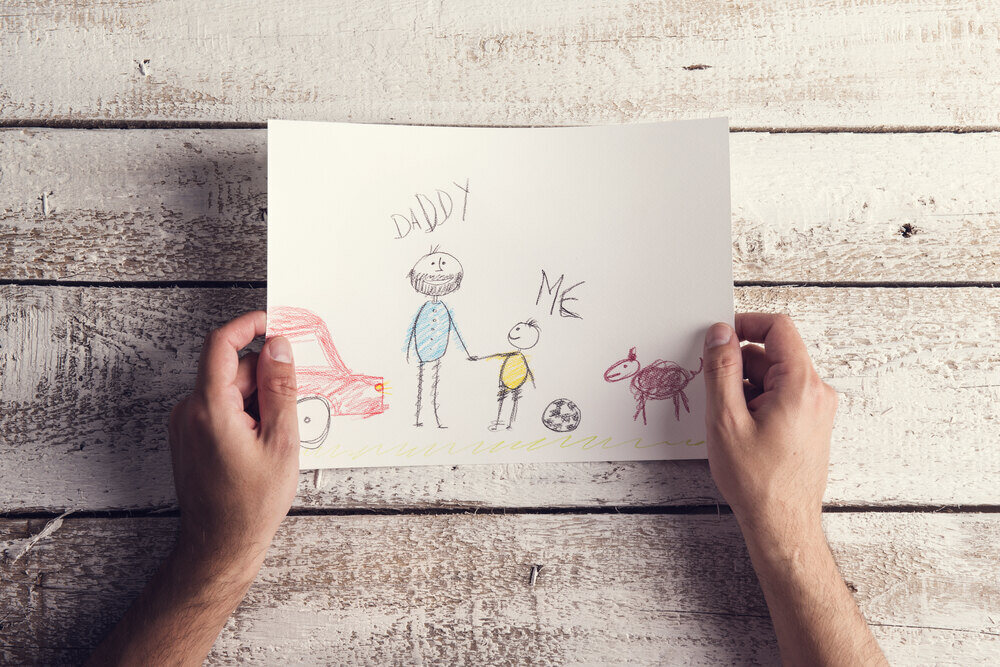
Unless you only have one dog in your lifetime, the sad truth is that you will experience the grief of losing a companion several, even many, times, and every time will be different.
Saying goodbye to an elderly dog is, in some ways, easier to come to terms with, knowing that they had a good, long life and are free of any pain and misery. Their death is likely not unexpected, and you may even be with them when they are euthanized. But this also means that they have probably been with you for a very long time, and suddenly being without them can be a shock.
When a young dog dies through illness or injury, there is the shock of a life cut short and the grief of the years you will never have together. Everyone’s experience is different, and everyone’s grief is valid. Our emotional attachment to our dogs cannot be measured in time. Whether you’ve been with your dog for 12 months or 12 years, grief is grief. Yours might look different from someone else’s, but it is just as real.
The Grieving Process and How to Cope
Understand that the grieving process is not linear, and you may go in and out of the various stages of grief: denial, anger, bargaining, depression, and acceptance. Despite what some may say, you will likely not experience them in that order—or you could; it depends on the individual. However, regardless of how strong these feelings are and how hopeless the grieving process can feel, there are some ways that you can cope.
- Acknowledge your grief and give yourself to feel all of your feelings and express said feelings.
- Although it might feel comforting at the time, try not to replay your last moments with your pet, especially if they were traumatic. Instead, it is better to focus on all the life you shared together and your favorite memories.
- Remind yourself that your pet’s pain has passed. Now that you’re the one in pain, it is time to take care of yourself.
- Memorialize your pet, if possible. Whether you spread your pet’s ashes, create a memory box, plant a tree in their memory, or commission a painting, these are all healthy ways to remember and honor your beloved pet and help you move on.
- Try to reach out to others who can be sympathetic or offer help, including support groups.
- Lap of Love, which provides grief courses and 50-minute one-on-one support sessions with a grief counselor.
- The Anti-Cruelty Society Pet Loss Support Group, which is an online support group program.
- Everlife Support Groups by state.
- Wings, which is a pet loss support group founded by the Chicago Veterinary Medical Association
- Association for Pet Loss and Bereavement support groups, available at specific times throughout the week.
My Own Experience With Losing My Dog
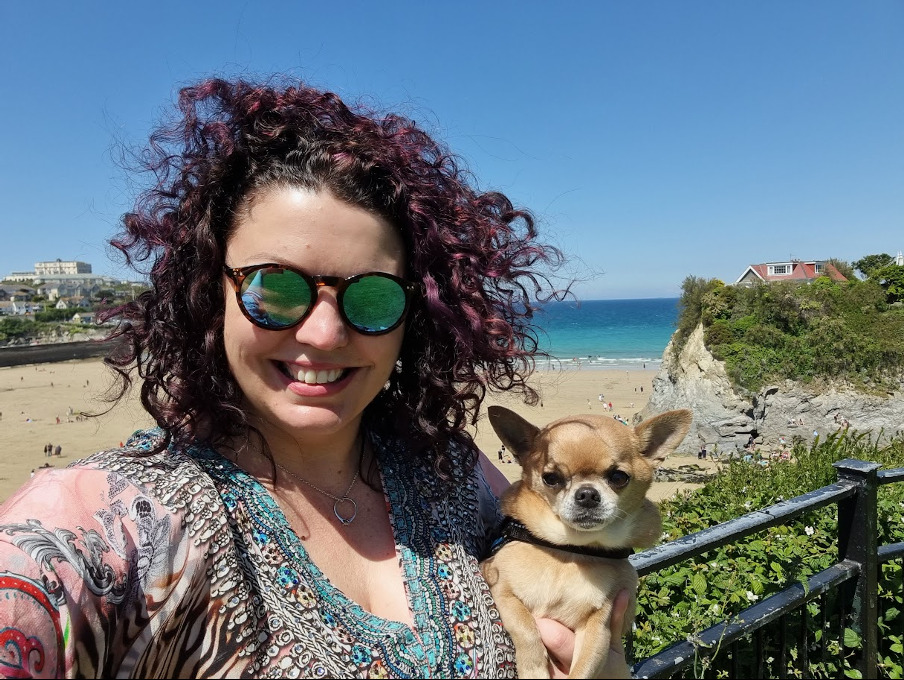
Never in a million years did I think I would have a Chihuahua, but thanks to a little dog named Potato, I don’t think I will ever have any other breed.
Potato, or Tate, as he was more commonly known (also Tater, Tater Tot, Potate), entered my life when his owner could no longer look after him. He had epilepsy, and she was struggling with the cost of managing his condition, as well as the toll it was taking on her mental health. She loved her dog, and she experienced her own grief when she gave him up, but it was because she loved him that she wanted to do what was best for him.
I brought him home for what was supposed to be a couple of nights until we could find him a permanent home. Within 24 hours, I knew that we would be his permanent home (though it took my husband a week to come to the same conclusion). I simply was not prepared for how funny, quirky, affectionate, feisty, and helpless this little creature was, and I had never loved anyone or anything as much as I loved him.
Tate came into my life when I was going through a really difficult time, and he became the one thing that I could rely on to be a source of comfort and positivity, which was a lot of responsibility to place on his tiny shoulders. He had only been with us for 1 year and 4 months when he had a massive seizure that he did not recover from. I was at work when it happened. The guilt of not being there when he died, and the guilt of being able to save other people’s dogs but not my own, overwhelmed me. I spent hours holding his tiny body, unable to picture my life without Tate in it, blindsided by grief I was not ready for.
Even now, more than a year later, thinking about him hurts my heart.

Opening Your Heart Again

Everyone has different ways of grieving and moving forward, and for most people, that process, at some point, includes welcoming a new dog into their lives. For some, a new addition happens quickly, with the joy and distraction of a new friend helping to alleviate the sadness. Others may have been anticipating this loss and have already introduced a new dog into their home in the hopes that the wisdom of the elder may be passed onto the young. Then there are those who wait months, even years, to be ready for another dog. Truthfully, there is no right way or right time, only what is right for you.
After we lost Tate, the emptiness almost consumed me; it was a grief like nothing I had experienced before. He had brought me so much joy and given me something to look forward to every day, and when he died, it felt like he’d taken all the joy with him. I knew that he could never be replaced, but I needed something to fill the hole he’d left in our lives.
I found myself struggling between the need to have another little creature in my life to cuddle and love, and the fear of one day feeling this low again. And it is something that continues to trouble me.
My next dogs—Ned, and later, Fred—have gone above and beyond in terms of filling our house with laughter and love, but Tate is still present in my mind. I miss him terribly, sometimes feeling guilty for how much I love Ned and Fred, as though it is some sort of betrayal of the love I had for him. And even though it is likely well over a decade in the future, I also find myself worrying about the inevitable day when I will lose them too. But I cannot let that fear win, and fortunately, Ned and Fred make it hard to feel sad for too long!

Final Thoughts: There Is No Right Way to Grieve
My story might resonate with some of you, and for others, it might sound completely over the top, and that is okay! Every person is different, every dog is different, and every relationship is different.
It might be an unexpected bond or a dog that has helped you through a difficult time (or both!) that makes the grief over one pet’s death more overwhelming than another. You might maintain a more compartmentalized relationship with your dog, or you may consider them family; there’s no one right way to love our dogs, and there is no one right way to grieve their loss.
What is important is that you allow yourself to go through it. Talk to other dog lovers, your family, or your friends, and if you find yourself feeling stuck or overwhelmed, reach out to a professional grief counselor—it is quite literally what they are there for. There are hundreds of groups and hotlines, with a few listed at the end of this article.
I still miss my Tate, and I expect that I always will. But it hurts a lot less than it did, even a few months ago, and I will always be grateful for the joy he brought to my life, and for introducing me to life with Chihuahuas.
Related Reads:
Featured Image Credit: Soloviova Liudmyla, Shutterstock












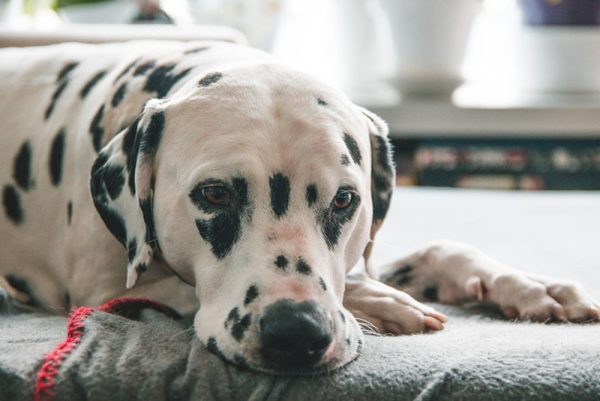

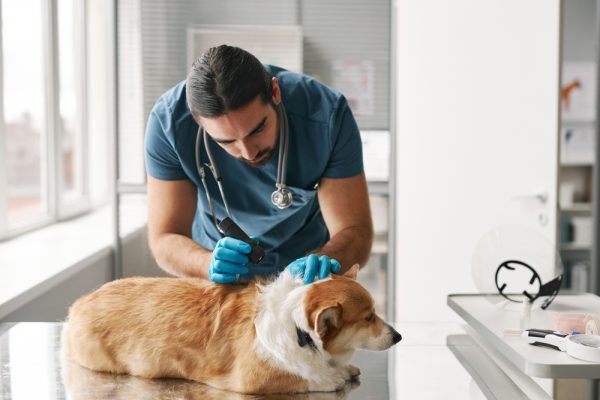
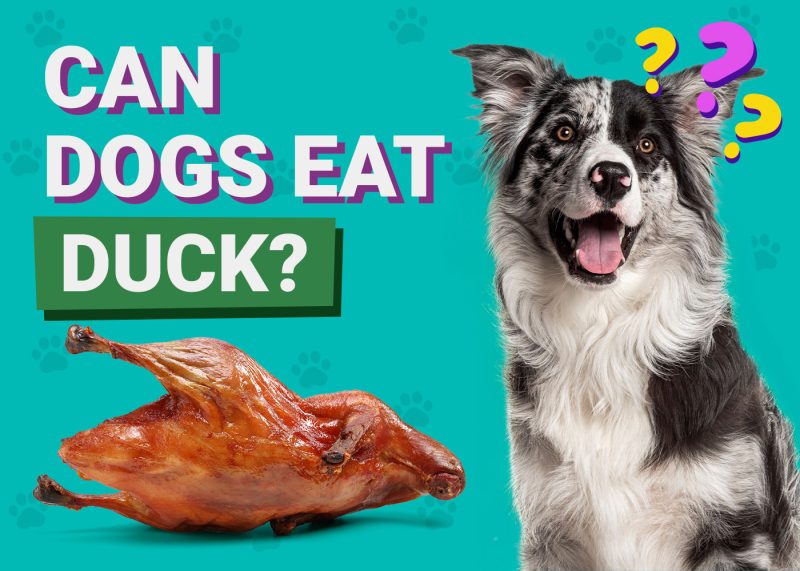



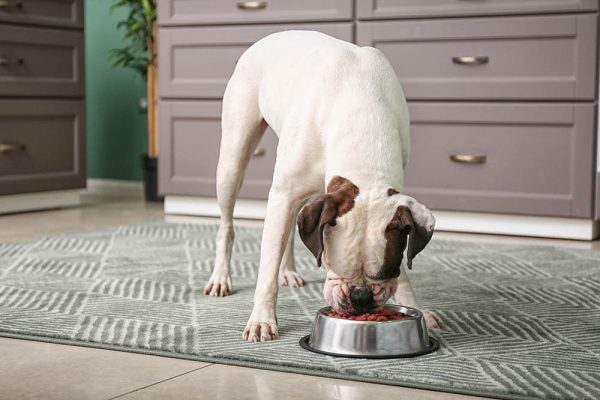






22 Responses
We lost our fur baby Moochi , old English sheepdog and poodle January11, 2025. Every day feels like a struggle without him here. I think about him every day crying. Thank you for sharing your story and all the comments have really helped me not feel so alone with my grief.
-Moochi’s mama
Hello Nicole,
thank you for your message, although we are very sorry to hear about Moochi's passing. Losing a companion is always terribly difficult and grieving process can take long. Just take your time and don't rush through this. Remember that you are not alone in this and that there are even some support group for people who are going through difficult times.
We are sending you positive energy, wish you all the strength and hope that one day you will be able to welcome another pup into your life.
Best wishes!
Thank you for sharing such a heartfelt and honest story about the loss of your beloved dog. As a fellow pet owner, I deeply resonate with the overwhelming grief and the irreplaceable bond we share with our animal companions. The pain of losing a pet is truly unique—sometimes it feels like losing a family member, and the emptiness they leave behind can be hard to fill.
Your experience of loving, losing, and eventually opening your heart again is both moving and encouraging. It’s a reminder that grief is not linear, and everyone’s journey is different. The love we have for each pet is special, and it’s natural to feel both gratitude for the time we shared and sorrow for their absence.
In my own journey of coping with pet loss, I found that creating a tangible memory helped me process my feelings and keep my pet’s spirit close. One meaningful way to do this is by commissioning a custom wool felt replica of your pet. These handcrafted pieces are not only beautiful keepsakes, but they also capture the unique features and personality of your beloved companion. Having such a memento can bring comfort and serve as a gentle reminder of the happy moments you shared.
If you’re interested, you can search for independent artists or platforms that specialize in wool felt pet replicas—just try searching for “wool felt pet” online. This kind of keepsake might help you honor your pet’s memory in a special, lasting way.
Hello Eric,
thank you very much for your wonderful message. And thank you for sharing your story with us – situations like these are never easy, so knowing we are not alone in this is always good.
Best wishes!
A month ago I lost my Betty. She had been 'old' for a long time, but suddenly everything caught up with her – her arthritis, her leishmaniasis, a terrible rattle in her lungs. She was a rescued Kokoni from Portugal, adopted aged 6, and was funny, merry and greedy. She got me through lockdown. She loved buses and trains, regularly travelling between the West Country and South Wales by train, and it was hard work to get her to walk past the railway station – she always tried to go in!
Signing the PTS form was the worst thing, and seeing her go. I actually felt her spirit leave. I miss her beyond reason. But am adopting another dog, from Romania this time. I miss Betty every minute, but the doglessness of my life makes me despair. So I think another fur baby will help.
I have chosen a dog, Charlie, had all the home checks, paid. and he is coming. But I have been offered another, Henry, who is on his way to the Kill Shelter. I panicked and said no, but now, coupled with Betty's loss, is this awful feeling that I should save Henry. I couldn't save Betty, or her predecessor Star, I didn't know enough to save my husband, but I am racked with guilt about Henry. I am paying his kennel fees in Romania so he won't go to the kill shelter, but is that enough. Betty Mac, I wish you hadn't had to go.
Ruby
Hello Ruby,
thank you for sharing your story with us, although heartbreaking one. I understand how difficult it must've been for you to say goodbye to your Betty. These situations are always terribly hard.
It is therefore admirable to hear that you still have a place in your heart for another dog and that you decided to adopt Charlie. And I also understand your dilemma about Henry. Many of us would love to save all the dogs in the world.
Best wishes!
I miss my Venus. She was beautiful inside and out. Though she was a beautiful girly looking pom; with the sweetest face. She loved the outdoors; loved rainy days in particular and running through puddles and splashing through them. We believe she would have preferred a dog house outside. She would spend as much time as she could under her favorite tree. She was the only one of our 3 dogs that would swim in the ocean running along the beach. She was tough and brave throughout her 11year life. She wove her way deep into my heart and soul. She was so gentle everyone loved her. She died of CHF. Meds gave me 4 years longer with her. I am so grateful for those extra years. I wanted her to die peacefully at home. I would tell her so many times: it was k just let go. But she kept fighting. She had a stroke lost the use of her back leg. I knew what had to be done. I put her to sleep 12/2424. I haven't been right since. Having 2 other dogs makes it even more difficult. The one I have right now is 16 and I am trying so hard to give him all the love he deserves. I have had him since he was 6 weeks. Still my house remains silent. I see her everywhere so hard to engage with my other 2 so deserving pets. I cry a lot think of her often hate puddles rainy days. When I walk my other 2 so lonely w/out her. She was my girl.. My comfort. I told her daily and everyone that she Venus was my Sun: my moon; and my stars. She was my everything.
Thanks for sharing this, Adele. Venus sounds like she was such a special part of your life. I’m really sorry you’re going through this — I hope the pain eases with time and the good memories help you heal.
Thank you so very much for your kind words.
Chicago was my whole life.
Almost 8 months later I am still crying.
He would have been 15 on November 9th 2024.
He died suddenly on September 10th 2024 to GVD.
I had 2 hours if that to.put him to sleep.
I have been a poodle owner for over 53 years.
I've lost many pets.
Loosing my Chicago was the worst.
I've had many losses in my life at almost 74 years old.
I often wonder why.
I have a little poodle Bichon 10 year old female dog named Lola.
I adopted her in January 2022 when her original owner was found dead in the senior bldg I live in
Lola was a puppy mill dog for 7 years.
She is now 10 years old.
I also have a sweet black cat named Little one.
I lost 2 cats and my Chicago living here in 4 1/2 years.
Chicago was a one of a kind dog.
He was given up at 1 1/2 years old.
We had adopted him from a shelter in Pleasantville, NJ when we lived in Levittown pa.
We had just lost our poodle Romeo to cancer.
Romeo died in his little doggie bed in our living room.
Chicago had been attacked by 2 Pitbulls that were not on leashes and he made it.
I loved my sweet little pumpkin.
That was my nickname for him.
I loved my Chicago very very deeply.
I know someday I will see him again in heaven with all my pets I lost and my husband Bob who I found dead in bed on September 2, 2015.
He was not sick.
He was 69 years old.
Thank you very much for your kind words.
Janet Wilson
Janet, my heart goes out to you—thank you for sharing such a deep and heartfelt story. You've been through a lot. Chicago sounded like such a special dog. I hope Lola and Little One continue to bring you comfort and love.
I just lost my 15yo dog this morning. I feel sick, nothing can fill the space of my favourite thing in the world. It's so painful.
I'm so sorry for your loss, P. Losing a pet is one of the hardest things to go through. They truly become a part of your heart and your life in ways that are hard to explain. It’s completely normal to feel like a huge part of you is missing right now—grief takes time, and it can feel overwhelming.
It might not help much right now, but know that you gave your dog a life full of love, and that bond and those wonderful memories will always be with you.
We had to say goodby to our dog Griffin yesterday. I feel like a piece of me is missing. Griffin and I got through the pandemic together by walking. We walked many miles together in good weather and bad. While I knew he was aging and he was in his sunset years I always thought we would make that journey together. He died so quickly, what we thought was a stomach upset turned out to be cancer that had spread throughout his body. In a matter of two weeks we went from our daily walk to having to say goodby, it came so fast. We were faced with that horrible decision; do we selfishly keep him alive and watch him slowly die or let him go in peace. We let him go.
Oh Dom, I'm so sorry to hear that! It sounds like Griffin was a great companion, and you truly found every opportunity to hang out together. I understand what you mean when it feels like a piece of you is missing. Losing a loved one is like nothing else in this world that we feel, I hope you can find solace in the incredible memories you made.
We just had to put our beloved German Shepherd of 10 1/2 years to sleep. It’s been 2 1/2 days and It’s not getting any easier. He was our third German Shepherd, and this time we can’t see or feel a way of getting through this grief.
We took care of him from finding the best healthiest foods and treats, which he enjoyed, everyone of them, to walking him every day rain, or shine. He was usually the one who initiated it, so we knew that a walk was in our daily routine. We were together with him, 24 seven for half of his life after we had retired. So that made us closer with each other,loved more often and part of our soul.
After reading your story, we felt so many points that you made resonated with us right on the head. Everywhere we go in our house there was our beloved dog. Now, if we go out, we don’t wanna come back home because he’s not there to greet us. At this time, the grief and pain is overwhelming.
We have tried reaching out to Pet grief support groups, but we have not connected with any yet.
Thank you for sharing your story. Helps us to realize that we are not and we’re not the only ones who go through this.
Thank you for such a well articulated article, I recently lost my rescue greyhound 'Boomer' after 7 years together and this really resonated with me: "Tate came into my life when I was going through a really difficult time, and he became the one thing that I could rely on to be a source of comfort and positivity…"
Boomer came into my life when I began recovery from drug addiction and addressing heavy mental health issues. While I've come a long way since, It feels awful losing not only my best friend, but also a huge part of my support that I very quickly have to start to learn how to do without.
Thanks again for the great article.
Hi I lost my chihuahua too. It’s about to be a year and I still cry about it, there is a lot of feelings I just cant. My mom doesn’t want to talk about it because it hurts her and I want to talk about it but i just feel like no one will get it, hahaha. Thank you so much for your words, have a wonderful day.
I'm sorry to hear about your loss, Jaazania. Losing a pet is incredibly hard and that grief can return for quite some time. I'm glad you were able to find some comfort in our post.
I lost my sweetheart poodle Chicago to GVD on September 10th 2024.
I am very sad
I am a senior and Chicago was my whole life.
I am a senior and a widow.
I’m so sorry for your loss, Janet. Losing a beloved pet, especially one who has been such an important part of your life, is incredibly difficult. Chicago must have meant the world to you! It sounds like Chicago was more than just a pet, but a real companion through so much.
I miss Hemmie and bug bug 😭
I feel for you, Bristol. I hope you’re finding comfort and joy in the memories!